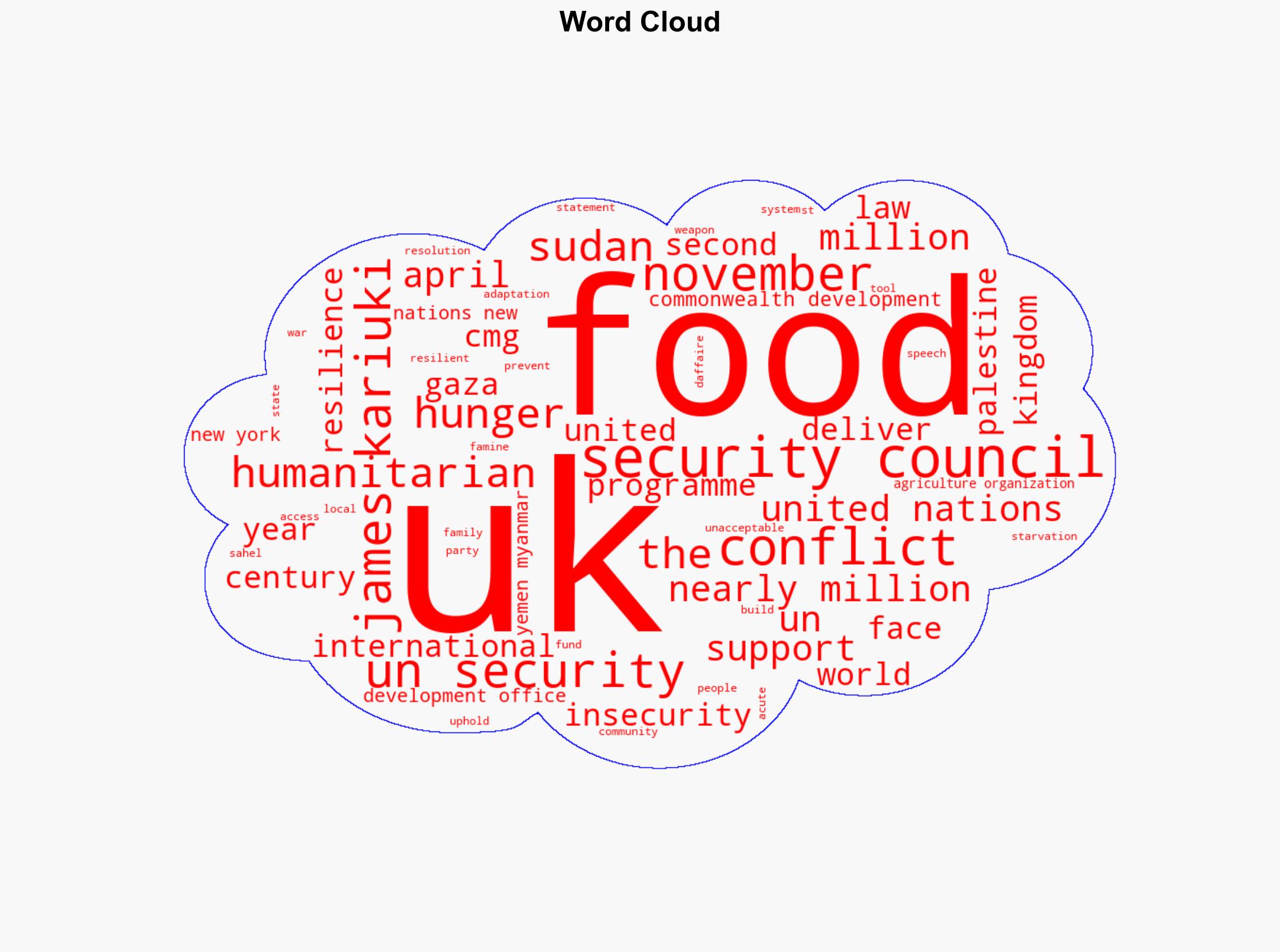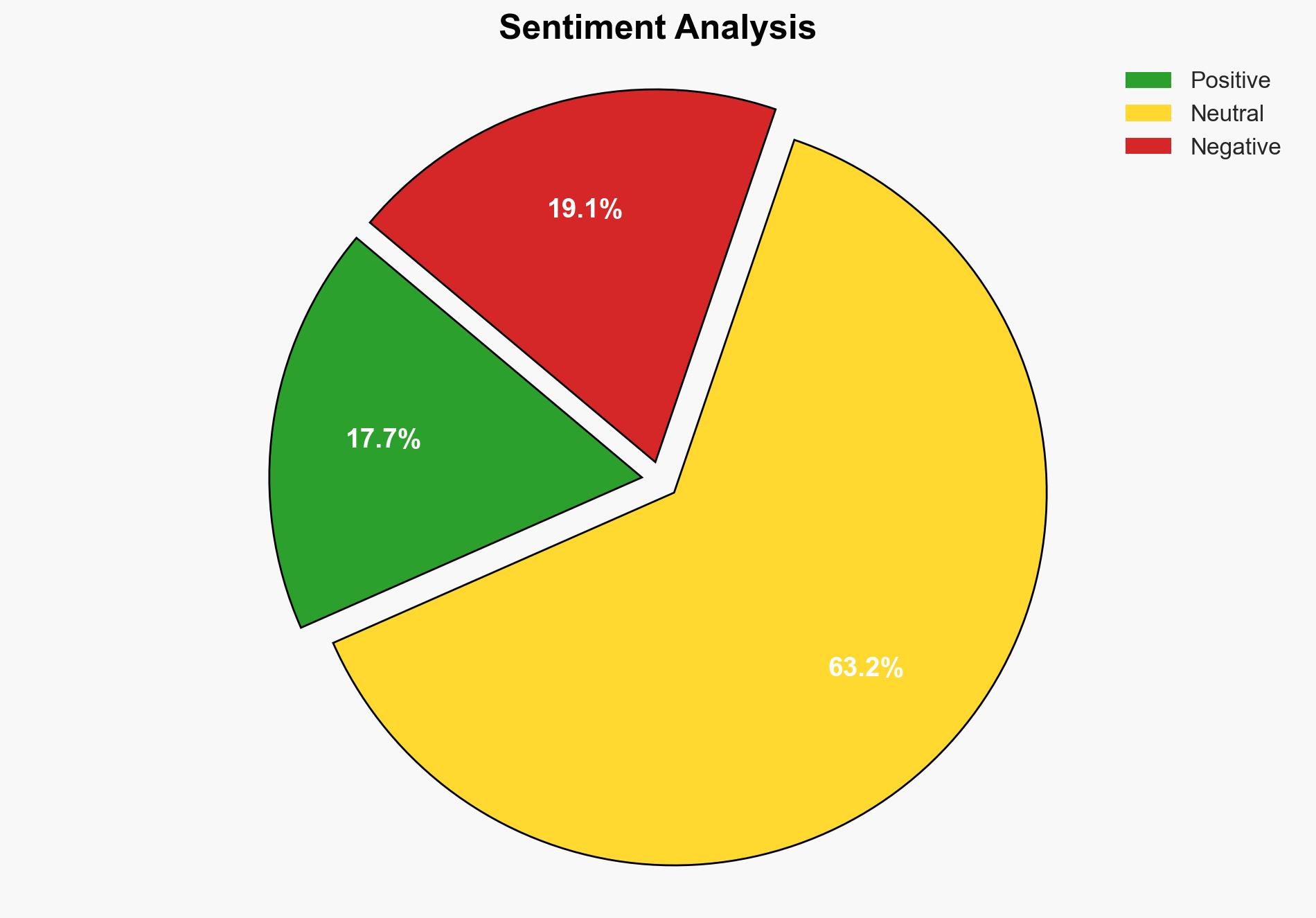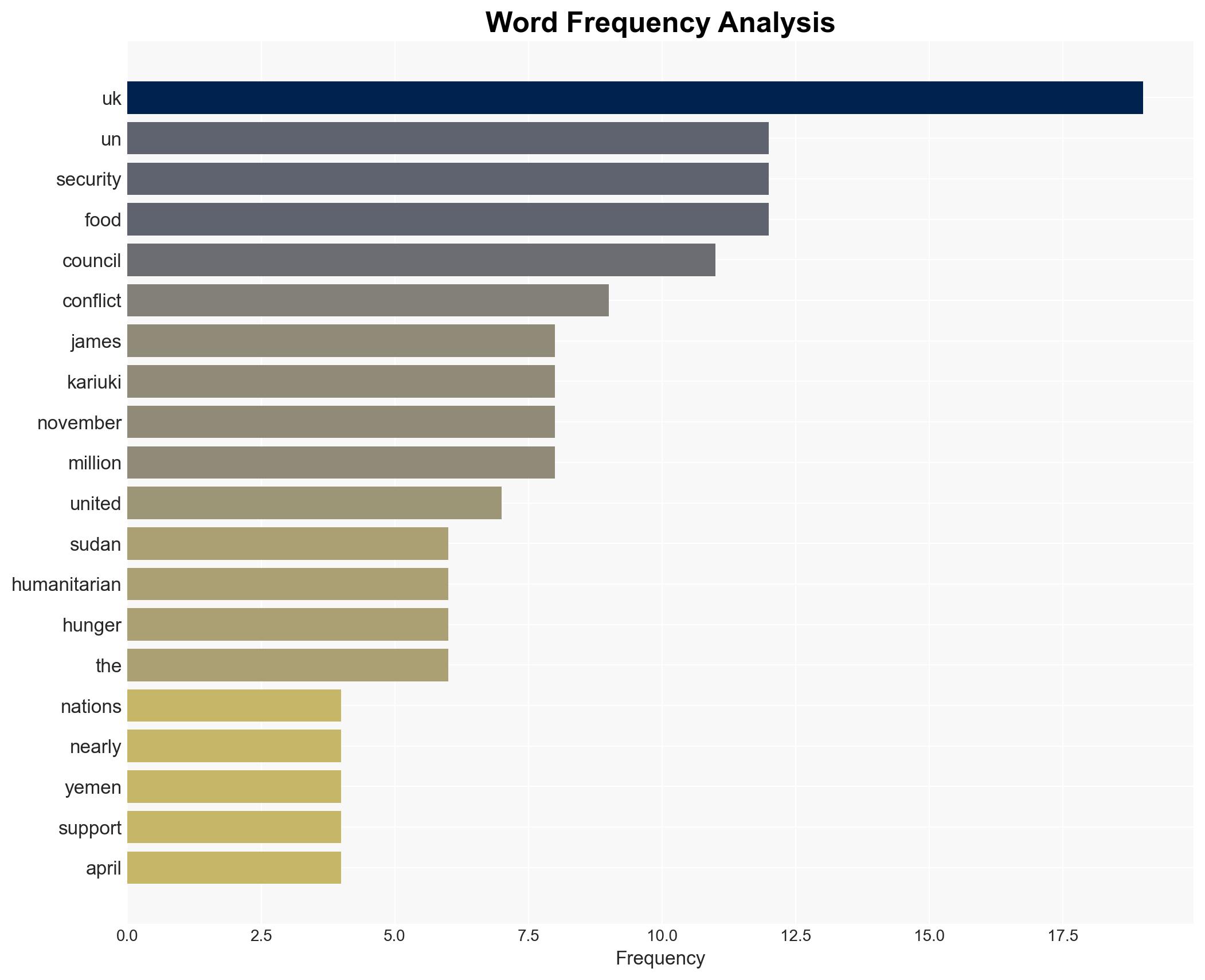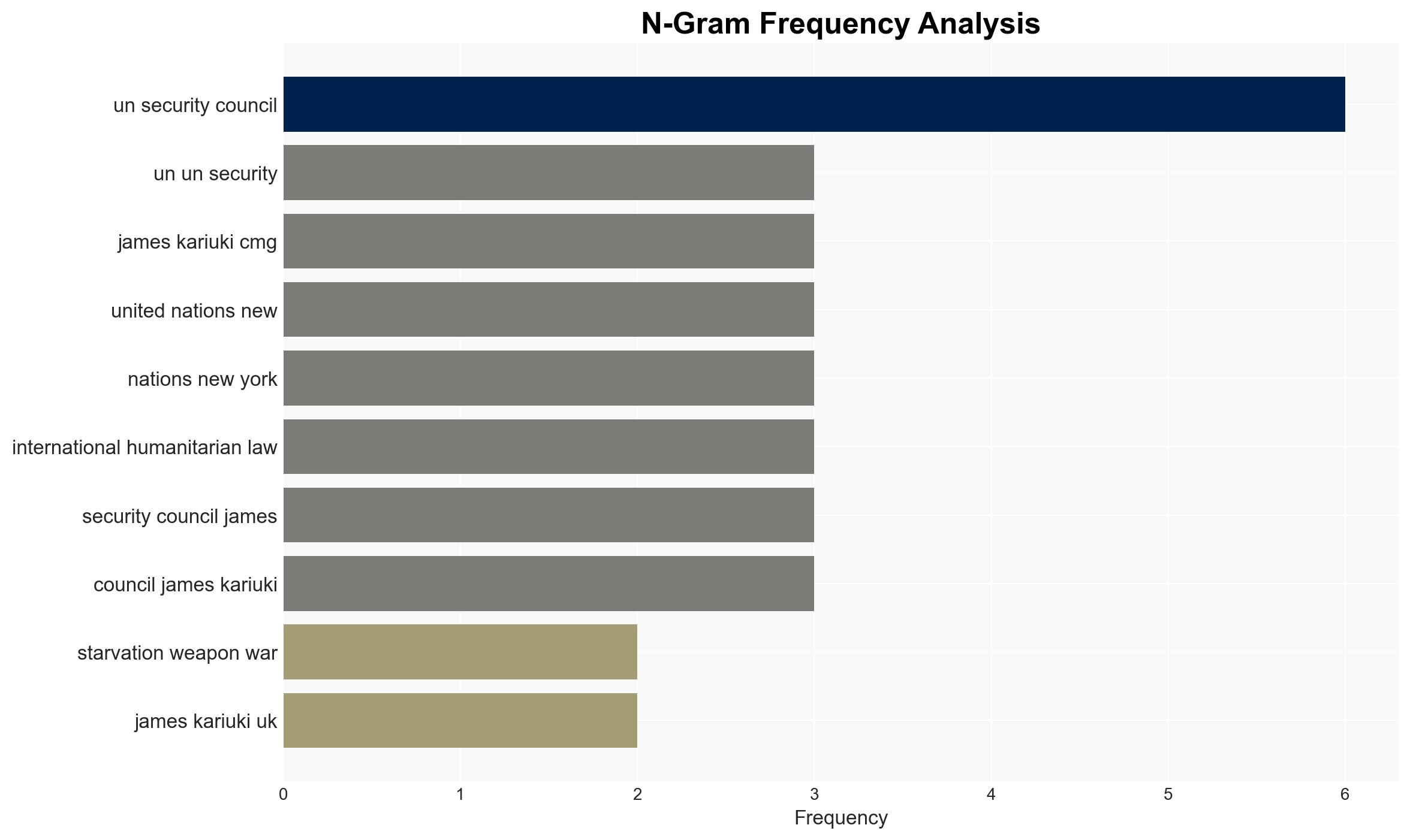The use of starvation as a weapon of war is unacceptable UK statement at the UN Security Council – Globalsecurity.org
Published on: 2025-11-18
AI-powered OSINT brief from verified open sources. Automated NLP signal extraction with human verification. See our Methodology and Why WorldWideWatchers.
Intelligence Report:
1. BLUF (Bottom Line Up Front)
The strategic judgment is that the UK is leveraging its position at the UN Security Council to advocate against the use of starvation as a weapon of war, aiming to bolster international norms and humanitarian law. This aligns with its broader strategic interests in promoting stability and resilience in conflict-affected regions. Confidence level: Moderate. Recommended action: Support UK initiatives to strengthen international legal frameworks and humanitarian access protocols.
2. Competing Hypotheses
Hypothesis 1: The UK is primarily motivated by humanitarian concerns and aims to strengthen international norms against the use of starvation as a weapon of war.
Hypothesis 2: The UK’s actions are driven by geopolitical interests, using humanitarian rhetoric to enhance its influence and leadership on the global stage.
The most supported hypothesis is Hypothesis 1, as the UK’s actions align with its historical commitment to humanitarian causes and its recent financial contributions to international food security efforts. However, geopolitical interests cannot be entirely discounted.
3. Key Assumptions and Red Flags
Assumptions: The UK has the capacity and willingness to sustain its financial and diplomatic commitments. International partners will support these initiatives.
Red Flags: Potential for political pushback from states accused of using starvation tactics. Risk of UK overstating its influence or underestimating the complexity of conflicts.
4. Implications and Strategic Risks
The UK’s stance could lead to increased tensions with nations implicated in using starvation as a weapon, potentially affecting diplomatic relations. There is also a risk of escalation if accused states retaliate through political or economic means. The initiative could catalyze broader international efforts, but may also face resistance from states prioritizing sovereignty over humanitarian intervention.
5. Recommendations and Outlook
- Actionable steps: Collaborate with international partners to enhance monitoring and reporting mechanisms. Advocate for the adoption of stronger international legal frameworks.
- Best scenario: Broad international consensus leads to effective enforcement of humanitarian laws, reducing the use of starvation in conflicts.
- Worst scenario: Political backlash undermines UK influence and exacerbates conflicts.
- Most-likely scenario: Incremental progress in international norms with mixed compliance from states.
6. Key Individuals and Entities
James Kariuki, UK Chargé d’Affaires at the UN Security Council.
7. Thematic Tags
Regional Focus, Regional Focus: Sudan, Gaza, Sahel, Yemen, Myanmar
Structured Analytic Techniques Applied
- Causal Layered Analysis (CLA): Analyze events across surface happenings, systems, worldviews, and myths.
- Cross-Impact Simulation: Model ripple effects across neighboring states, conflicts, or economic dependencies.
- Scenario Generation: Explore divergent futures under varying assumptions to identify plausible paths.
Explore more:
Regional Focus Briefs ·
Daily Summary ·
Support us
·





